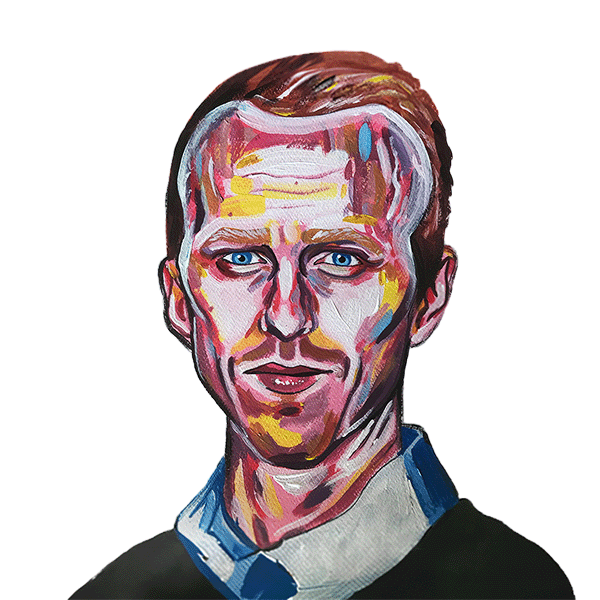Introducing Scout: Sports-Inspired Talent Search

There is a phrase in Swedish: “bara döda fiskar följer strömmen,” which translates to “only dead fish follow the stream.” At Spotify we seek to challenge conventional wisdom and industry norms if it will add value to our business. Reflecting this, ‘innovation’ is one of our company values, which is probably not hugely surprising for a tech company, or for any aspiring company aiming to be more than they are today, for that matter. That said, it’s a very easy word to put on a page and an entirely different proposition to embody that word and translate it into action. Whether it’s our parental leave policy, our compensation strategy, work from anywhere, or Disco, we’ve proven our commitment to innovation time and time again.
One innovation missing from the list above is our approach to performance development where we choose not to use performance grades. This isn’t something new for Spotify, but it’s not the industry norm. And as Michaela wrote about last week, our decision to “ditch the list” in order to create a better process for succession planning.
From an HR insights perspective, the interesting question is: how do you identify talent (at scale) in an organisation where traditional performance grades don’t exist? Well, say hello to Scout.
Taking inspiration from the world of sports (football specifically, or soccer for our American readers), Scout is our work-in-progress way of leveraging the data points available in Disco to proactively scout our business to identify our current top talent, and our future rockstars. All of this is consolidated into a unique user interface that allows our HR team to explore everything they could wish to track around talent. Whether that’s career history, roles that they are considered successors for, or their development history, Scout allows all of this to be accessible at the click of a button.
Sports, probably more than any other area, has done a phenomenal job at quantifying attributes that can be analysed to identify talent. There’s the famous example of Moneyball, Draft Weekend, or even in computer games like Football Manager (the player search in this game is the inspiration for Scout). What each of these examples has proven is that quantifying attributes is an incredibly powerful tool by which to make informed decisions around your key talent. The same thinking can be replicated in a business setting.
The next big question is how? And this time, we look to the famous English saying of: “actions speak louder than words” for inspiration to tackle the how. Our bet in building Scout is that there are a host of actions, or what we term as ‘events’, that happen to employees in their everyday work lives that are potentially indicative of strong performance. The most simplistic example is a promotion, but there are a whole host of more subtle events that when combined paint a very compelling picture by which to identify talent from. By leveraging the capabilities we have built in Disco we are able to quantify attributes against employees that point to our philosophy around talented individuals.
An important point to make is that Scout is only doing what its name suggests i.e. scouting. It’s about identifying potential that then requires further investigation/validation from HR and the business. Scout isn’t selecting and then making automated decisions on employees. That role will always be the responsibility of the HRBP and the business. Or in other words, a human being.
We are very much driven by the philosophy of being data informed at Spotify. This is a perfect example of this. There’s an art to identifying and making judgement calls on talent. Those judgement calls are often made on the unquantifiable – experience or observation. What Scout does is provides us with scale at identifying talent and casts a net that isn’t siloed in individual business areas. It also allows us to include a whole population of individuals that don’t always feature. When an organisation reaches a certain size, it’s impossible for a HRBP to know every individual. To prioritise, it’s likely they will focus on talent at the top end of the organisation and miss out on a whole host of talent further down in the organisation. Scout allows these employees to be seen. Not only does this have an impact on how we think about such topics as succession planning, but it also provides a tool to help us make even more deliberate, equitable and inclusive decisions on nurturing talent. That may be project opportunities, internal mobility or other development opportunities.
In People Analytics and It’s Identity Crisis, we referred to the new age of HR insights as: “Analytical output that is deeply integrated within a product suite that is both driving the core employee experience and improving the effectiveness of HR”. The statement marked a shift in our people analytics team’s output from being wholly focussed on analysis, to being products which analysis is a part of. And the launch of Scout highlights it further.
People analytics is about HR, and providing them with an arsenal of tools, grounded in data, that they can leverage with the business to drive business value. Disco was the foundation and Scout is the first pillar that provides a capability, which significantly improves our ability to help and support the business in better decisions. This is the new age of HR Insights and we’re just getting started.



